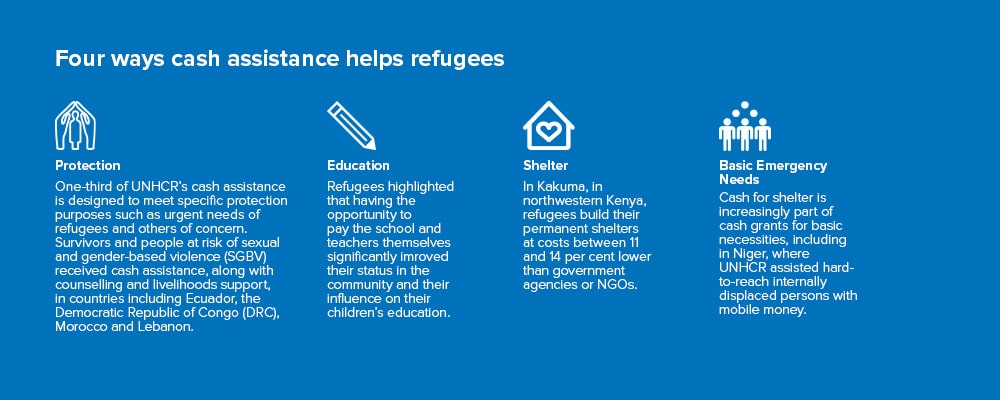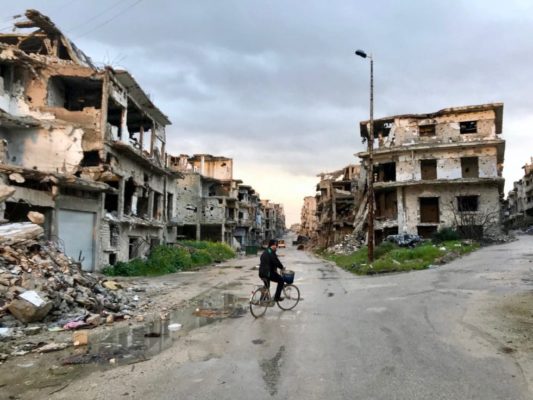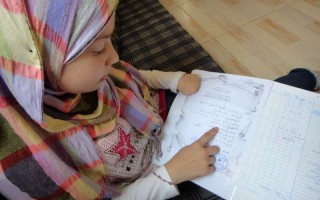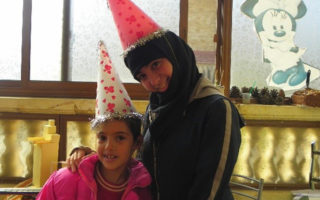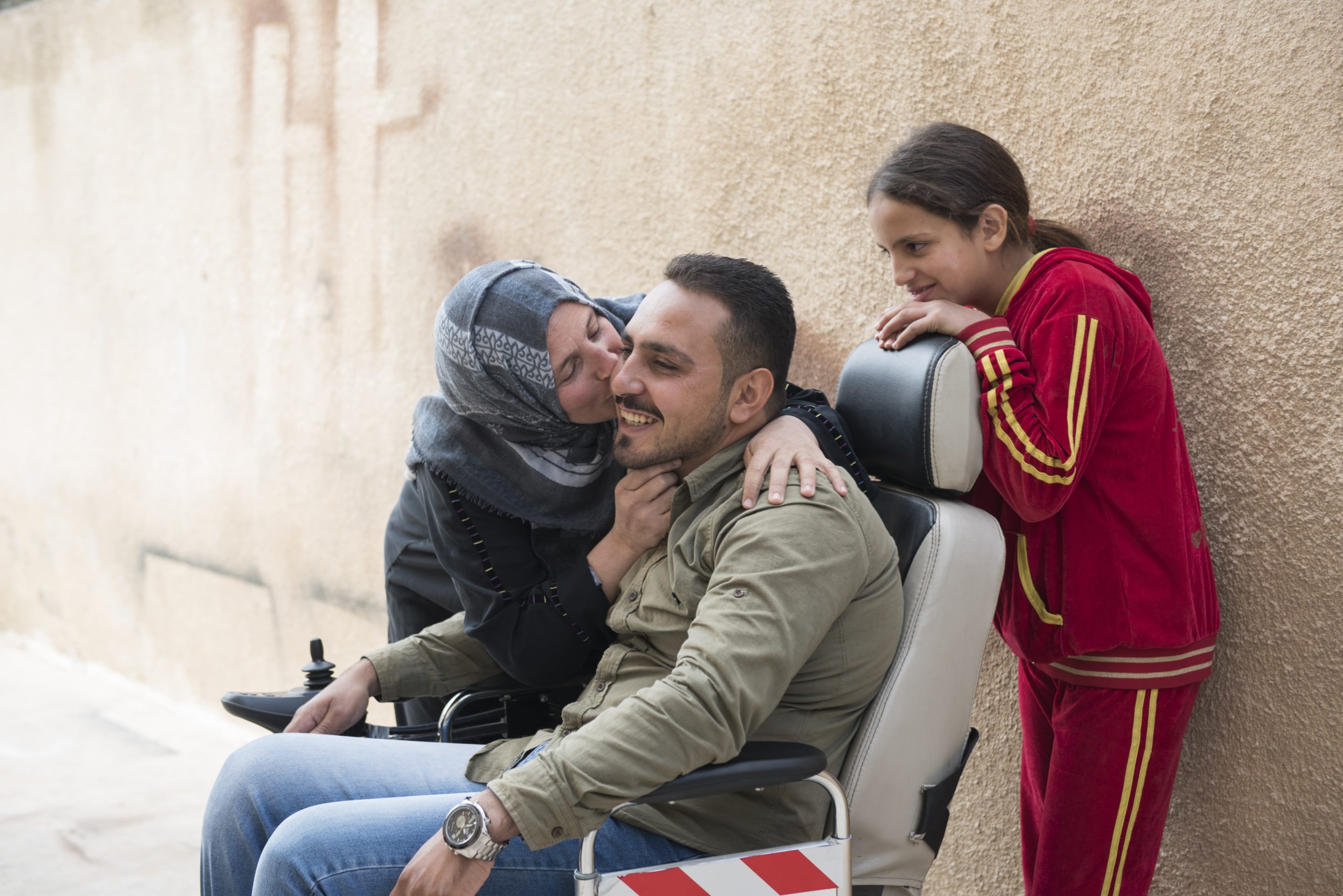
(From left to right) Mariam, Mohammad and Noha are photographed outside of their home in Jordan. ©UNHCR/Hannah Maule-ffinch
Mohammad’s family was forced to flee their hometown of Aleppo in Syria when it came under heavy, life-threatening siege in 2012 — but not before a grave injury changed his life forever.
Ongoing violence and airstrikes destroyed his neighbourhood — and left Mohammad paralyzed from the waist down.
With the help of friends, he fled to Jordan and was reunited with his family. Today, he lives in a small apartment in the city of Irbid, in northern Jordan, with his mother Mariam, and his siblings, including eldest sister, Zakeyeh, who acts as his caregiver.
The family depends on monthly cash assistance from UNHCR to meet their basic needs. In addition to being able to afford rent, utilities, food and health care, it facilitates moments that help nurture and strengthen their households.
Approximately 70 per cent of Syrian refugees across the Middle East and North Africa region live below the poverty line. Paying for basic essentials is often a struggle. It is a challenge that often puts refugees’ families in dire risk, often sending them into a “spiral of vulnerability,” forcing them to make difficult choices such as skipping meals or taking their children out of school.
With the cash assistance that the family receives, Zakeyeh says her younger siblings, Noha, 13, and Ali, 11, are able to continue to attend school, and that they haven’t been forced to go and work and provide for their family like some — a chance that Zakeyeh herself has missed.
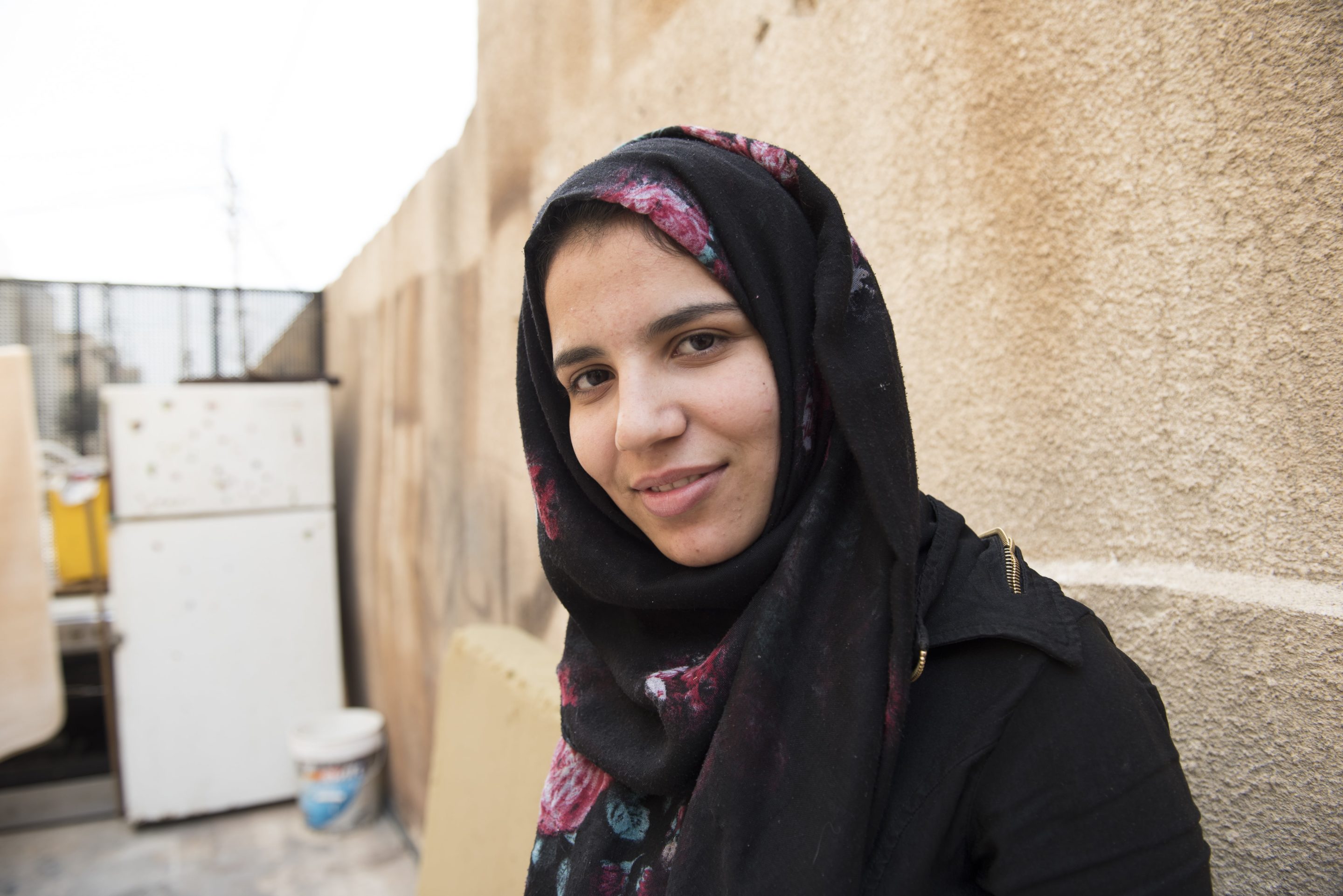
Zakeyeh stands outside her home in Jordan. ©UNHCR/Hannah Maule-ffinch
Arriving in Jordan in 2012 when she was 10 years old, Zakeyeh has spent most of her life here caring for Mohammad, her mother with health issues and four younger siblings. When talking about her daily routine, she is both focused and matter-of-fact.
“As soon as I wake up, I prepare breakfast for my siblings, wake them up and make sure they get dressed. Then I see if my brother needs anything. I cook and assist my family at the house,” she says. “I understand what my mother needs and I give her a hand. So, it’s a good feeling to be an older sibling.”
Still, she recalls the life she had to flee in Syria with fondness and longing.
“I remember how different our life used to be. I used to go with my cousins to play and hang around. For me, life was much lovelier,” Zakeyeh recalls. “I still have cousins in Syria. I always check whether they are doing well or not. Whether they miss us or not. I miss my childhood.”
With longing for her past and responsibility for her present, she still dreams of what her future could hold.
“I would like to study,” Zakeyeh says. “I would like to be a teacher, so I could tell students all about life.”



